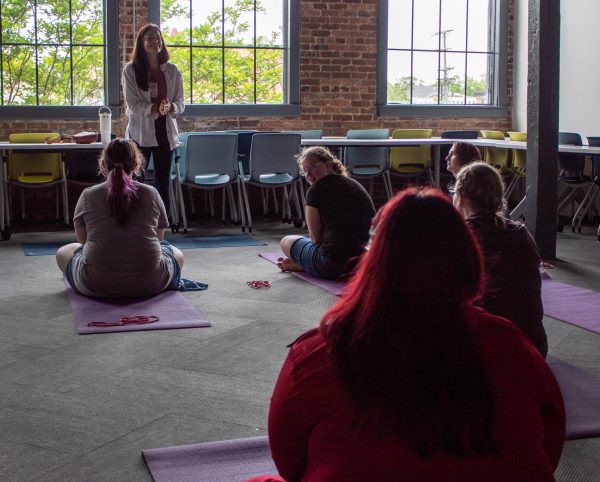Occupy movement sparks interest at UNA
November 17, 2011
The series of Occupy Wall Street demonstrations are an ongoing attempt by protesters to raise awareness of issues such as corporate greed, economic failings and social inequality.
“It’s been so long since this country saw a revolution, they’ve forgotten what one looks like,” said MBA student Cameron Kelly-Johnson. “This is how I view Occupy Wall Street.”
Kelly-Johnson believes the people participating in the movement are making a tangible difference.
“They are looking to build consensus solutions and make sure that the catastrophic financial events of recent times do not get swept under the rug,” he said. “They have been acknowledged by President Obama and other politicians and have held to their model of not allowing outside political forces to control their agenda.
“They have even had a likely direct effect on Wells Fargo, Chase and Bank of America, who all retreated on their new policies to charge fees for debit card users.”
Other members of the UNA community also see the effects of the movement around the globe and even here in Florence.
“Occupy Wall Street has spread to a number of different cities around the world, such as Oakland, London, and even Court Street in Florence,” said Associate Professor of English Vince Brewton.
Brewton said that the Occupy Wall Street movement has made people think about wealth and inequality. He questions, though, the extremity of continuous occupation.
Regardless of whether one believes the Tea Party has been negative or positive, Brewton said the Tea Party’s method of “protesting for an hour on a Saturday morning” and then electing officials that represent the values being represented is a positive model for effective change.
Both Kelly-Johnson and Brewton agree, though, the misconception of the general public that all of the protesters are the unemployed is simply false.
Brewton said that one cannot know the situation of every individual that is part of the movement, but he said that many may be students with flexible schedules.
“While hearsay paints the occupiers as unemployed individuals of certain demographics, photographic evidence and direct interviews have proven otherwise,” Kelly-Johnson said. “The movement is diverse and contains individuals from a wide variety of demographics, including Occupy Wall Street’s donors.”
In accordance with Brewton’s view that many of the protesters may be students, Kelly-Johnson believes that this movement can give students a chance at participation in a political venue.
“For university students in particular, this may have a large effect,” he said. “The chance to not only participate in a consensus process, but also being a part of one of the most in debt demographics means the results of this movement could have a high impact.”










